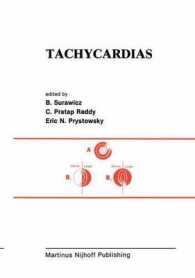- ホーム
- > 洋書
- > 英文書
- > Business / Economics
Full Description
Bangladesh seeks to attain middle-income status by 2021, the 50th anniversary of its independence. To accelerate growth enough to do so, Bangladesh needs to build a competitive urban space that is innovative, connected and liveable. Bangladesh's urban areas have to take proactive measures to improve and sustain all three drivers of competitiveness - innovation, connectivity and liveability.
The results of a survey of 1,000 garment firms - conducted to provide a lens through which to investigate urban competitiveness - reveal that Dhaka City is the most productive location for garment firms in Bangladesh. It is falling behind in accessibility and liveability because of high congestion and severe constraints in land and housing markets, however. And it needs to gain a competitive edge in higher value-added products and services. Peri-urban areas of Dhaka are emerging as competitive manufacturing centres, but they suffer from Dhaka City's congestion and have less access to infrastructure. Chittagong City has failed to capitalise on its comparative advantage as the country's largest seaport city. Strategically located export processing zones are higher-productivity, higher-cost locations that are partially shielded from the inefficiencies of urban areas. Medium-size and small cities are uncompetitive 'distant places', which need to foster local entrepreneurship to find their comparative advantages. Strengthening competitiveness across Bangladesh's cities calls for coordinated and multipronged interventions encompassing infrastructure, institutions, and incentives to transform Dhaka into a globally competitive metropolitan region, leverage Chittagong City's natural comparative advantage as a port city, promote strategically located export processing zones to foster industry competitiveness and spearhead urban reforms, and create the enabling environment for local economic development in medium-size and small cities.








